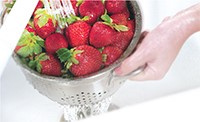Drain Dos & Don’ts
Flushing or throwing damaging materials down the drain can cause blockages and backups.
Don’ts
Waste Disposal

- Don’t flush wipes, rags or personal hygiene products.
- Don’t put egg shells or coffee grounds in the garbage disposal, sink drain or toilet.
- Don’t put motor oil, lard or cooking oil down the drain. These items should be disposed of in the garbage.
- Don't flush kitty litter.
Did you know...
- Garbage disposals use large volumes of water and electricity. Reducing or eliminating their use will lower your sewer, water and power bills.
- Chemicals or additives that claim to dissolve grease may not be effective. Grease can build up in sewers, restricting the flow of wastewater that comes from our homes. This blockage forces wastewater up onto our streets where it then enters the storm drain system and clogged sewer pipes on your property may incur a costly plumbing repair bill.
- The following products are considered household hazardous chemicals and should never be flushed down the sewer: pesticides, nail polish, oven cleaners, spot remover, vehicle fuel, oil or grease, fertilizer, rodent poison, weed killer, paint, varnish, stripper or thinners or battery fluids. These require disposal at a hazardous waste collection station.
Dos
Food strainer

- Use baskets or strainers in sink drains to catch food scraps and other solids.
- Scrape grease and food scraps from plates, pots and pans, utensils and grills into the garbage.
- Keep fats, oil and grease out of our sewers. This helps to keep our environment clean.
- Capture animal fats in a can and put all food waste and discards in a trash container.

